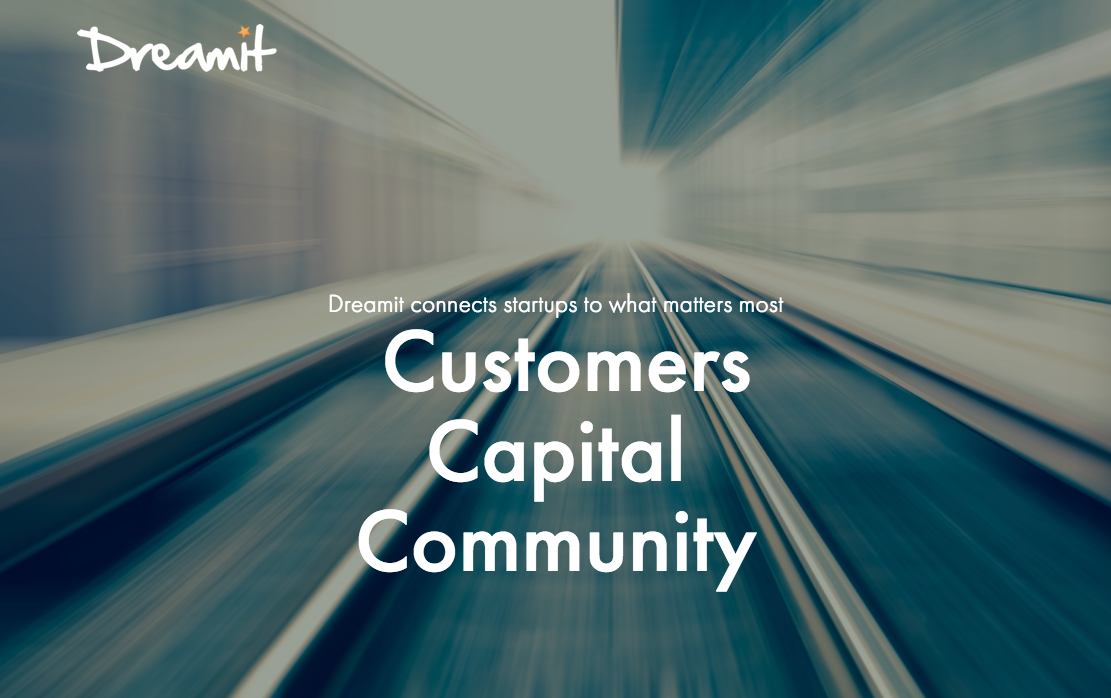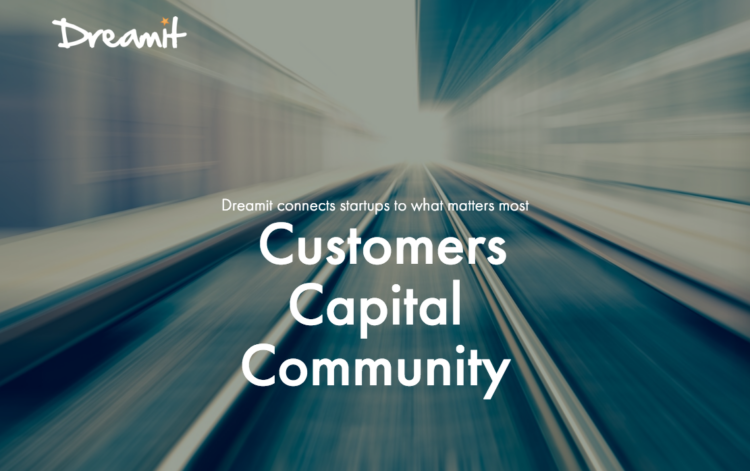
Seemingly, there is a new crop of startup accelerator programs popping up weekly. Most provide the same benefits – an initial investment in return for a slice of equity, office space for the duration of the program, mentorship from industry professionals, and other perks from service providers culminating in an investor demo day. Many also promise to help with business development to secure revenue because at the end of the day startups should think about making money, rather than relying on subsequent funding to keep a business growing.
The depth of the business development portion varies from program to program but our friends at Dreamit have taken a more formalized approach to business development for their portfolio companies. Today, we chat with Avi Savar, CEO of Dreamit to learn more about some very specific ways that Dreamit fosters business development for its portfolio companies.
Please tell us a little bit about Dreamit and the types of companies that the Accelerator looks for.
Dreamit is one of the longest-running accelerators out there and, humbly, one of the most successful. We’re a top 20 most active venture firm in the country and a top 10 global accelerator, and from the beginning we’ve been differentiated by our focus on customers. Our portfolio includes 250+ breakthrough technology companies and disruptive software platforms across multiple industries, ranging from household names like SeatGeek to complete industry game changers like BioBots.
The truth is, the term “accelerator” by itself is no longer accurate for us. It conjures up this idea of business plans scribbled on a cocktail napkin. In the past year, Dreamit has made significant upgrades and has evolved into the only growth accelerator designed for mature startups — companies who have already raised capital and demonstrated traction within the market and are looking to scale through customer acquisition. Those are the startups we’re looking for, and of course, we’re also looking for leadership teams that are truly exceptional – seriously dedicated men and women with the right mix of skills, passion, and hustle. For the Fall program, we’re continuing to focus on high-potential Digital Health and EdTech companies.
Tell us about ‘Customer Immersions’ and the “First Customer Network” at Dreamit.
Dreamit’s approach to acceleration is designed to meet a demand created by shifts in the startup environment. The reality is today’s post-seed companies with product market fit, some revenue, or early traction have limited funding options and resources to scale before qualifying for today’s “super-sized” series A rounds.
We believe that more than anything a company at this stage needs commercial feedback and access to the right people to get it from. To that end, we’ve built a community of industry specific companies that we call the First Customer Network – a nod to the massive impact of a startup’s first customer.
We put our accepted startups in front of these companies in ½ day Customer Immersions where we conduct a fast pitch presentation giving key executives the opportunity to act as “sharks” asking all the tough questions. This is followed by a showcase to the rest of the organization to further deepen the relationship between the startups and their future customers. All of this is to drive pilot programs and distribution before we match them with larger venture funds and investor groups to raise follow-on funding.
What was the impetus for formalizing the process?
It’s both philosophical and, frankly, logistical. Immersions have become a key component of the Dreamit experience and we wanted to solidify that. Any founder who has ever landed a meeting with a major customer knows it can be a herculean effort to pull off. The way we structure our immersions takes months of planning to execute effectively and get all the right people in the room at the same time, especially because we are talking about C-Level executive participation. The more we continue to formalize the immersion process, the more effective it becomes for the startups as well as the customers.
Can you walk us through some examples of some companies and their experience with the program?
I think the best source of examples comes from the participating companies themselves. Here is what a few of the current participants had to say about their experience with the First Customer Network and the immersions.
“Meeting senior Penn State decision makers during DreamIt’s Customer Immersions not only gave us critical insights in how to improve the PeopleGrove platform but also was integral in understanding how large universities operate. And now, PSU is a customer.”
Adam Saven, Cofounder & CEO, CampusKudos
“Customer immersions at Dreamit allowed us short-cuts in our understanding of the market and accessing it, with respect to validation of value proposition and our suggested commercial models. For example, the ability to meet with Penn Medicine and discuss with them our go-to-market approach, compare it with their existing practices in our domain of behavioral modification and piloting our platform in their jurisdiction and, made a big difference.”
Eran Ofir, CEO and Cofounder, Somatix
“There are few things as crucial to a start-up as a direct line of communication with customers. And breadth matters: UPenn, Intermountain, and UHS, for example, have very similar technology needs, but very different cultures and organizational perspectives. Dreamit’s network is helping us deliver value to a more diverse customer base.”
Jeff Valk, Cofounder, Admetsys
“Not only did the immersions help us to refine our sales process and communication, the multiple engagements in front of potential customers substantially increased the number of opportunities in our pipeline.”
Nicole Tucker-Smith, CEO, Lessoncast
“The Dreamit customer immersions provided us with ridiculously good access to key stakeholders at potential customers and partners. We met with high level decision makers at places like Independence Blue Cross in rapid succession over the course of a few days. It would have taken us 6 months to schedule meetings with the same people on our own. This type of access is exactly what Digital Health startups need in order to shorten customer sales cycles in our race against the clock to gain traction and prove our value.”
Matt Loper, Cofounder, Wellth
“You often hear about Office hours and demo days as standard modus operandi of accelerators, but DreamIt does something fundamentally different in addition to those – Customer Immersions – where (healthcare) startups get to pitch their products and ideas to companies like Pfizer, Merck, UHS (and similarly for edtech companies). It is not just an early feedback for the idea, but it lets you whet a customer’s interest and as well lets you gauge the speed and direction you need to move in. Plus, when you are sitting in the meeting with the President of a health system which could have taken you months, if not weeks, to get through, there is not much to complain about!”
Vidur Shailendra Bhatnagar, CEO, Keriton
Outside of the potential for revenue what else does the program provide?
Meeting your target customers in the early stages of your company’s development can lead to key insights and validation that ultimately can make or break your future. This is where the true value proposition comes to life for Dreamit participants.
How can entrepreneurs learn more?
We are currently in recruiting mode right now for the fall program and we encourage entrepreneurs to visit Dreamit.com and begin the application process. Applications close on July 6th so if they are interested they should act quickly!



